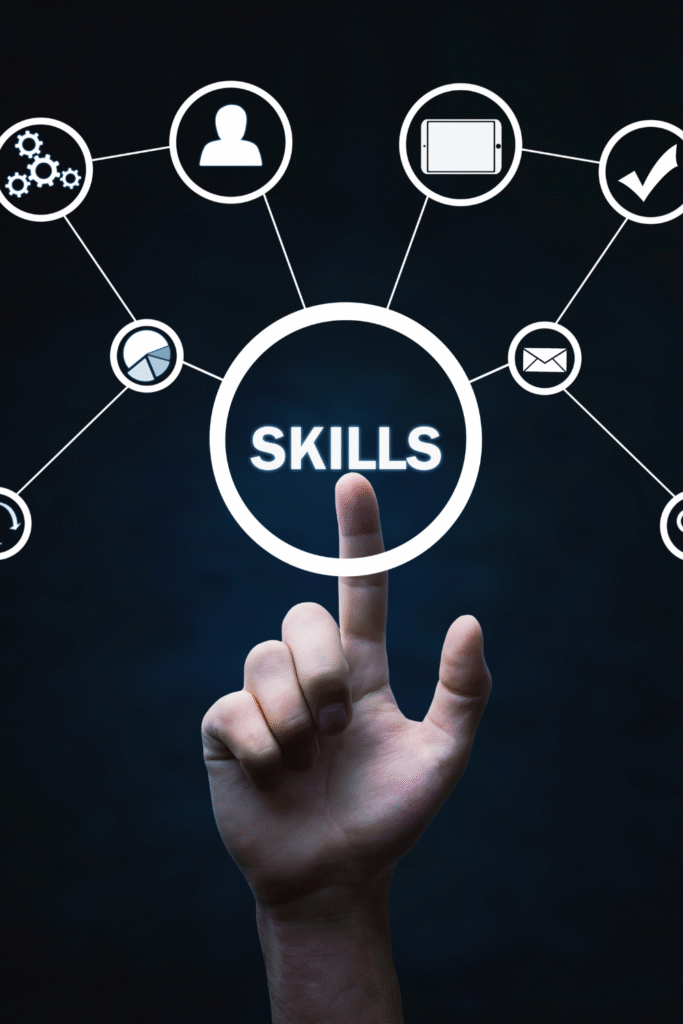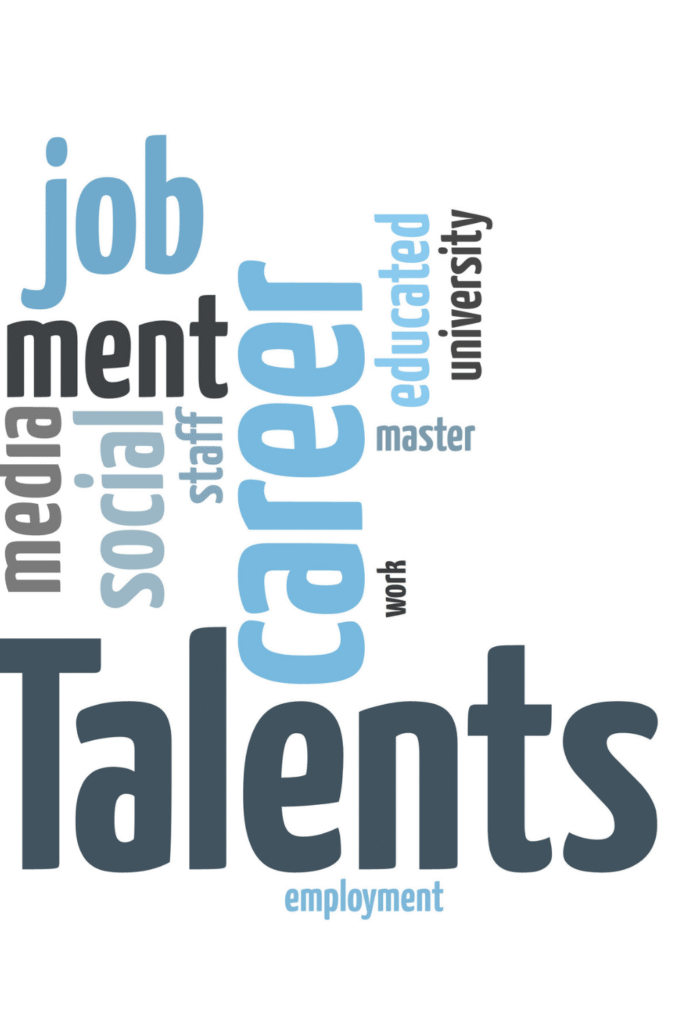When it comes to personal growth and self-improvement, we often hear terms like abilities, skills, and talents. They’re frequently used interchangeably, but each has a unique meaning and plays a distinct role in shaping who we are and what we can achieve.
Understanding these differences is a game-changer for anyone looking to grow, find their passion, or unlock hidden potential.
This guide will clear up the confusion around abilities, skills, and talents, show why they matter for personal growth, and, most importantly, teach you how to identify and develop them.
Whether you’re trying to improve at work, pick up a new hobby, or simply become more self-aware, this guide is packed with practical insights and actionable advice.
What Are Abilities, Skills, and Talents?
Before we jump into the details, let’s properly define these terms to lay the groundwork for understanding. Knowing the difference is the first step in maximizing their potential.
Abilities
Abilities are your natural capacity to do something. These are innate and often align with your physical or mental capacity.
Think of abilities as the foundational tools you’re born with. For instance, some people are naturally good at problem-solving, while others might excel at physical coordination.
Example: If you find it easy to analyze situations and spot patterns, you likely have an innate analytical ability.
Why They Matter:
- Abilities set the stage for developing skills.
- They often point you toward talents you may not have noticed yet.
Skills
Skills, on the other hand, are acquired through learning, practice, and experience. You aren’t born with skills—they’re developed over time.
For example, learning to cook or mastering a software program are skills you acquire through effort and persistence.
Example: If you have a natural ability for public speaking, you could hone it into a skill by taking courses, reading communication guides, or practicing regularly.
Why They Matter:
- Skills are essential for success in almost every area of life, from career growth to personal hobbies.
- They indicate your commitment to growth and open doors to new opportunities.
Talents
Talents are a mix of natural abilities and skills that come effortlessly to you. These are the things you excel at with minimal training or effort.
They often feel second nature and are likely to stand out to others.
Example: A person with a talent for music might pick up an instrument and instinctively understand how to play it.
Why They Matter:
- Talents set you apart from others.
- They’re often where your greatest opportunities for personal fulfillment lie.
The Importance of Understanding These Differences
You might be wondering—why does it matter? Can’t you just try everything and see what sticks? While experimenting is valuable, understanding the difference between abilities, skills, and talents prepares you to focus your efforts, save time, and achieve meaningful growth.
Here’s how it impacts your personal development:
1. Self-Awareness Leads to Better Choices
Knowing your abilities, skills, and talents helps you set realistic goals and choose paths that align with your strengths. Instead of wasting energy on activities that don’t suit you, you can channel your efforts toward areas where you’ll thrive.
2. Boosts Personal and Professional Success
Success often comes from playing to your strengths. By honing what you’re naturally good at or passionate about, you’ll create more impactful outcomes in less time.
3. Builds Confidence Over Time
When you see measurable progress in areas you care about, your sense of self-confidence grows. This positive reinforcement makes it easier to tackle bigger challenges down the road.
How to Identify Your Abilities, Skills, and Talents
Understanding what you’re good at is the first step to unlocking your potential. Here are some practical strategies to get to the core of your unique capabilities.
Step 1: Reflect on Your Experiences
Think back to moments where you’ve felt successful or in your element. Ask yourself:
- What activities come naturally to me?
- When do I feel most energized and engaged?
- What challenges have I overcome with ease?
Step 2: Seek Feedback
Sometimes, others can see our gifts more clearly than we can. Ask family, friends, or colleagues for insights into your abilities and talents. Their feedback may reveal things you’ve overlooked.
Step 3: Explore New Activities
If you’re unsure about your untapped abilities, experiment! Take up new hobbies, enroll in classes, or join clubs. The more you try, the more you’ll learn about yourself.
Step 4: Personality and Strengths Assessments
There are plenty of tools designed to help you assess your strengths. Popular options include StrengthsFinder, Myers-Briggs, and the Enneagram. While no tool is perfect, they can offer useful starting points.
Developing Skills and Expanding Your Potential
Once you’ve identified your foundational abilities and talents, it’s time to build on them by developing skills. Here’s how:
1. Set Clear Goals
Decide where you want to grow. Vague ambitions like “get better at writing” don’t inspire action. Instead, be specific—something like “write one blog post every week for six months” sets a clear benchmark.
2. Create a Plan
Break your goal into actionable steps. For instance, if you want to develop public speaking skills, you could:
- Watch TED Talks for inspiration.
- Practice speaking in front of a mirror.
- Join a local Toastmasters group for real-world experience.
3. Prioritize Consistent Practice
Skills are built over time through repetition. Allocate dedicated time weekly to focus on improvement, whether it’s 30 minutes a day or longer bursts once a week.
4. Stay Curious and Open to Feedback
No one becomes an expert overnight. Seek constructive criticism and view it as fuel for growth, not failure. It’s this mindset that will keep you improving.
Overcoming Challenges During the Growth Process
Growth is never a straight line. You’re likely to encounter challenges like self-doubt, procrastination, or even plateaus along the way. Here’s how to push past them:
- Combat Self-Doubt: Remind yourself of your progress so far and lean on mentors or peers for encouragement.
- Break the Fear of Failure: See mistakes as learning opportunities. Each setback is a stepping stone toward mastery.
- Manage Time Effectively: Prioritize tasks that align with your goals, and don’t get bogged down by activities that don’t add value.
Inspired by Real-Life Examples
To show you how abilities, skills, and talents translate into success, here are two inspiring examples:
1. From Natural Athlete to Champion
Serena Williams is known for her incredible talent on the tennis court. However, her success wasn’t purely talent—it was years of hard work honing her natural athletic ability into world-class skills.
2. A Born Speaker Turned Advocate
Malala Yousafzai’s talent for public speaking was evident from a young age, but it’s her consistent effort, bravery, and dedication to global education that turned her natural ability into life-changing work.
The Bigger Picture of Personal Growth
While developing abilities, skills, and talents is essential, personal growth encompasses more than just self-improvement.
It’s about becoming the best version of yourself and making an impact on others. By building on your strengths, you’ll inspire those around you and contribute meaningfully to your community.
Wrapping Up With Actionable Steps
Here are five simple things you can do today to kickstart your growth:
- Reflect on your natural abilities by writing them down.
- Pick one skill to start developing and make a plan.
- Seek feedback on your talents from people you trust.
- Invest in resources, like books or courses, to speed up your growth.
- Commit to consistent practice, even when it feels difficult.
Remember, the key to meaningful personal growth lies in pulling together your natural abilities, developing skills, and nurturing your talents. When these are aligned, there’s truly no limit to what you can achieve.








